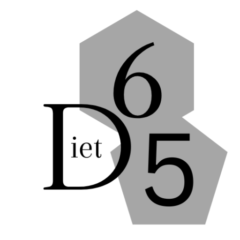The Ideal Protein Diet is a medically developed weight loss program that focuses on high-protein, low-carb meals. This diet was created by Dr. Tran Tien Chanh, a physician with expertise in nutrition and sports medicine. The core idea behind the Ideal Protein Diet is to promote fat loss while preserving lean muscle mass by limiting carbohydrate intake and relying on protein as the primary energy source.
The Ideal Protein Diet consists of structured meal plans, which include specially formulated products, such as meal replacement shakes, bars, and prepackaged meals. The diet is divided into several phases, each designed to help individuals achieve and maintain their target weight while developing long-term, healthy eating habits.
What is the Ideal Protein Diet?
The Ideal Protein Diet is a four-phase plan that focuses on re-educating the body to burn stored fat for energy instead of relying on carbohydrates. By reducing carbohydrate intake, the body enters a state of ketosis, where fat is broken down to produce energy. This approach accelerates weight loss, especially in the initial phase, while ensuring that muscle mass is preserved through a high-protein intake.
History and Origin of the Ideal Protein Diet
Dr. Tran Tien Chanh originally developed the Ideal Protein Diet to help athletes and individuals struggling with weight management. The program gained popularity due to its effectiveness in promoting rapid fat loss and its focus on long-term sustainability. Over the years, the Ideal Protein Diet has been refined and is now offered through authorized clinics and trained coaches, providing personalized support to participants.
Core Principles and Science Behind the Diet
The Ideal Protein Diet is grounded in the science of insulin regulation and fat metabolism. By drastically reducing carbohydrates, insulin levels remain stable, reducing fat storage and encouraging the body to use its fat reserves for energy. Protein plays a key role in this diet by providing essential nutrients and ensuring that the body doesn’t lose muscle mass during the fat-burning process. The diet’s structure is designed to guide individuals through weight loss, stabilization, and long-term maintenance.
Table of Contents
Phases of the Ideal Protein Diet
The Ideal Protein Diet is divided into four distinct phases, each designed to guide individuals through a structured weight loss journey and maintain long-term results. The focus of each phase is on gradually transitioning from rapid weight loss to stabilization and healthy weight management. These phases help reprogram the body’s metabolism, with the goal of establishing sustainable eating habits.
Weight Loss Phase
The first phase of the Ideal Protein Diet is the most restrictive and focused on rapid fat loss. During this phase, carbohydrate intake is drastically reduced to induce ketosis, where the body burns fat for energy instead of carbohydrates. Participants rely on Ideal Protein products, such as meal replacements, along with select vegetables and lean protein. This phase continues until the individual reaches 70-80% of their target weight.
Stabilization Phase
Once significant weight loss has been achieved, the second phase, known as the Stabilization Phase, begins. The goal of this phase is to gradually reintroduce certain carbohydrates into the diet while still maintaining weight loss. Protein intake remains high, and dieters continue to use Ideal Protein products. This phase focuses on balancing blood sugar levels and preventing the body from regaining weight.
Maintenance Phase
The third phase, the Maintenance Phase, focuses on long-term weight management. In this phase, participants learn how to maintain their ideal weight through balanced eating habits. The principles of healthy eating, portion control, and a balanced intake of proteins, fats, and carbohydrates are emphasized. Participants are encouraged to adopt a sustainable lifestyle that includes regular exercise and mindful eating to avoid regaining weight.
Long-term Success Phase
The final phase of the Ideal Protein Diet is dedicated to long-term success. In this phase, participants have fully transitioned to eating whole, balanced meals without relying on Ideal Protein products. The goal is to maintain the habits learned during the previous phases and continue to manage weight in a healthy and sustainable way. Regular check-ins and ongoing support from Ideal Protein coaches are available to help individuals stay on track.
Meal Plans and Approved Foods
The Ideal Protein Diet is structured around carefully designed meal plans that help individuals achieve fat loss while maintaining muscle mass. The diet relies on a combination of Ideal Protein products and whole foods that are high in protein and low in carbohydrates. Each phase of the diet has specific food guidelines to follow, making it easier to adhere to and reach weight loss goals.
Ideal Protein Meal Plans
The Ideal Protein Diet provides structured meal plans that emphasize protein intake while limiting carbohydrates. In the Weight Loss Phase, the meal plan includes three Ideal Protein products each day, along with one whole-food meal that consists of lean protein and select vegetables. The focus is on keeping calories low while ensuring adequate protein to preserve muscle mass.
During the Stabilization and Maintenance Phases, the meal plan becomes more flexible, with fewer Ideal Protein products and more whole-food meals. This gradual reintroduction of carbohydrates is carefully managed to prevent weight regain and help participants transition to a balanced, long-term eating plan.
Approved Foods on the Ideal Protein Diet
The Ideal Protein Diet allows specific foods that support fat loss while maintaining muscle. In the initial phases, dieters focus on high-protein, low-carb foods, which include:
- Lean Protein: Chicken, turkey, fish, and lean cuts of beef or pork are common choices.
- Non-Starchy Vegetables: Broccoli, spinach, kale, and other low-carb vegetables are encouraged to provide fiber and essential nutrients.
- Ideal Protein Products: Meal replacement bars, shakes, soups, and other pre-packaged items are used to control calorie intake while providing adequate protein.
As participants move into later phases, healthy fats and a wider variety of vegetables and fruits are introduced. However, the diet continues to restrict starchy foods, processed carbohydrates, and high-sugar items, which can interfere with fat loss and cause weight regain.
Foods to Avoid
To ensure the body stays in a fat-burning state, certain foods are off-limits in the earlier phases of the Ideal Protein Diet. These include:
- Starchy Vegetables: Potatoes, corn, peas, and similar high-carb vegetables.
- Grains and Bread: All forms of bread, pasta, rice, and other grains are avoided.
- Sugary Foods and Beverages: Desserts, sugary snacks, sodas, and fruit juices are restricted due to their high carbohydrate content.
The gradual reintroduction of some of these foods occurs in the Maintenance Phase, but participants are encouraged to continue monitoring portion sizes and overall carb intake to maintain their weight loss.
Nutritional Value of the Ideal Protein Diet
The Ideal Protein Diet is designed to provide balanced nutrition with a focus on high protein intake, low carbohydrates, and moderate fat consumption. The carefully structured meal plans ensure that individuals receive the essential nutrients needed for weight loss while preserving lean muscle mass. Understanding the nutritional breakdown of this diet is key to seeing why it is effective for fat loss and overall health.
Macronutrient Breakdown
The core of the Ideal Protein Diet is its high protein content, which accounts for approximately 40% of daily calorie intake. Protein helps maintain muscle mass during weight loss and keeps individuals feeling full and satisfied. Carbohydrate intake is kept extremely low, typically around 20-30 grams per day, which induces a state of ketosis, where the body burns fat for energy instead of carbs. The diet includes a moderate amount of healthy fats, mainly from sources like fish, nuts, and oils, which make up the remaining calorie intake.
Vitamins and Minerals
The Ideal Protein Diet ensures that participants get essential vitamins and minerals by incorporating supplements into the program. This helps prevent nutritional deficiencies that can occur in low-carb diets. Vitamins such as B12, vitamin D, and minerals like magnesium are typically supplemented to support energy levels, bone health, and overall well-being.
Comparison with Other Diets
Compared to other popular diets like Keto, Paleo, and Atkins, the Ideal Protein Diet offers a more structured approach with prepackaged meals and a focus on coaching support. While other diets also focus on high-protein, low-carb eating, Ideal Protein provides a more balanced, portion-controlled meal plan with specific nutritional targets to help people stay on track. The emphasis on both macronutrients and micronutrients ensures that the body gets the support it needs during each phase of the diet.
Cost of the Ideal Protein Diet
The cost of the Ideal Protein Diet can vary depending on several factors, including the duration of the program and the number of products purchased. While the diet is known for its effectiveness in weight loss, it is important to understand the financial commitment involved before starting. This cost is primarily divided into three categories: Ideal Protein products, consultations, and maintenance.
Breakdown of the Costs
Ideal Protein Products:
The majority of the cost of the Ideal Protein Diet comes from the meal replacement products. During the initial Weight Loss Phase, participants consume three Ideal Protein products per day, including meal bars, shakes, soups, and snacks. The cost of these products typically ranges from $15 to $20 per day, or around $400 to $500 per month. As participants progress into the Stabilization and Maintenance Phases, the need for these products decreases, lowering the monthly cost.
Consultations and Support:
Another cost to consider is the price of consultations with an Ideal Protein coach or healthcare provider. Many clinics charge an initial consultation fee, which may range from $50 to $100. Ongoing weekly or biweekly consultations are often included in the program, but some clinics may charge additional fees for these sessions. The support and guidance provided by these consultations are key components of the Ideal Protein Diet and contribute to its long-term success.
Maintenance Costs:
Once the Stabilization and Maintenance Phases are reached, participants transition to more whole foods and fewer Ideal Protein products. This reduces the cost of the diet, though some individuals may choose to continue using the products occasionally. Maintenance costs primarily involve regular grocery expenses for lean proteins, vegetables, and healthy fats. While the overall cost decreases in this phase, maintaining a healthy diet may still involve purchasing higher-quality whole foods, which can be slightly more expensive.
Comparing the Cost to Other Diets
When compared to other popular diets like Keto or Paleo, the Ideal Protein Diet can be more expensive due to the reliance on proprietary meal replacement products and ongoing coaching support. However, the structured nature of the Ideal Protein Diet, combined with the guidance of a coach, can be a worthwhile investment for those seeking rapid and sustainable weight loss. Some individuals find that the cost of the program is offset by the convenience of prepackaged meals and the reduced need to plan or prepare meals from scratch.
Certainly! Here’s the content for the remaining topics, maintaining an informative and straightforward style:
Effectiveness for Weight Loss
The Ideal Protein Diet has proven to be highly effective for weight loss, especially for those who are committed to following the structured phases. Its low-carb, high-protein approach encourages the body to enter ketosis, where fat is burned for energy, leading to significant fat loss while preserving lean muscle mass.
Average Weight Loss
Participants typically experience rapid weight loss in the first phase, with most losing 2 to 5 pounds per week. The initial rapid results motivate dieters to stay on track, and continued adherence to the program ensures that they achieve their target weight in a relatively short period.
Timeframe to See Results
Most participants notice visible results within the first two weeks, as the body enters ketosis and starts using fat for fuel. The duration of the Weight Loss Phase depends on the individual’s goals, but many participants reach their target weight within 12 to 16 weeks.
Comparison with Other Diets
Compared to other popular diets like Keto or Atkins, the Ideal Protein Diet is more structured, providing specific guidelines and products. While Keto also leads to fat loss, the Ideal Protein Diet offers more personalized support through coaching, which can lead to higher adherence rates and better long-term outcomes.
Ease of Adherence
The Ideal Protein Diet is structured in a way that makes it relatively easy to follow, particularly for individuals who prefer clear guidelines and meal plans. However, like any diet, there are challenges depending on personal preferences and lifestyle.
Simplicity of the Plan
One of the key benefits of the Ideal Protein Diet is its simplicity. The diet provides specific meal replacements, approved foods, and supplements, eliminating the need for extensive meal planning or calorie counting. For people who thrive on structure, this makes the diet straightforward and easier to adhere to.
Challenges
While the structure can be beneficial, some participants may find the restrictions—especially in the Weight Loss Phase—challenging. The limitation on carbohydrates and the reliance on meal replacements may feel monotonous after a while. Social situations like dining out can also be tricky, as the food options might not align with the diet’s restrictions.
Flexibility for Different Lifestyles
The diet’s pre-packaged meals and clear guidelines make it suitable for individuals with busy schedules, as they can quickly prepare meals without much hassle. However, those with a more flexible eating style may find it challenging to stick to the rigid structure in the early phases.
Potential Health Benefits
The Ideal Protein Diet offers several health benefits beyond weight loss, primarily due to its focus on a low-carb, high-protein intake and balanced nutrition. While weight loss is the primary goal, many participants experience other positive health outcomes during and after following the program.
Improved Blood Sugar Control
One of the most significant health benefits of the Ideal Protein Diet is improved blood sugar control. By reducing carbohydrate intake, the diet helps to stabilize insulin levels, which can be beneficial for individuals with type 2 diabetes or insulin resistance. Many participants report better blood sugar management, with some even reducing their need for medications.
Heart Health
The diet’s emphasis on lean proteins and healthy fats can positively impact heart health. Lowering carbohydrate intake, particularly refined sugars and processed carbs, helps reduce triglyceride levels and bad cholesterol (LDL), which can improve overall cardiovascular health.
Long-Term Health Impacts
For those who follow the Ideal Protein Diet through its Maintenance Phase, long-term benefits include sustained weight loss and improved metabolic health. By teaching individuals to incorporate healthy habits and balanced meals into their routine, the diet promotes lasting health improvements, including reduced risks of obesity-related conditions like hypertension, heart disease, and certain cancers.
Side Effects and Risks
While the Ideal Protein Diet can be highly effective for weight loss, it also comes with potential side effects and risks, especially during the early stages of the program. It’s important to understand these factors before starting the diet.
Common Side Effects
Some participants may experience side effects during the first few days or weeks of the diet, particularly as the body adjusts to the low carbohydrate intake. Common side effects include:
- Fatigue or low energy due to carbohydrate restriction
- Headaches, often referred to as “keto flu”
- Dizziness or lightheadedness
- Constipation, as the diet may lack fiber in the early phases
These symptoms typically subside as the body adapts to burning fat for energy.
Medical Risks
The high-protein nature of the diet may not be suitable for everyone. Individuals with kidney issues, for example, should consult with a healthcare provider before starting, as the increased protein intake can put additional strain on the kidneys. People with diabetes or other chronic conditions should also approach the diet with caution and under medical supervision to avoid complications.
Comparison with Other Diets
Like other low-carb diets such as Keto and Atkins, the Ideal Protein Diet carries similar risks related to nutrient deficiencies and the possibility of dehydration. However, the structured nature of the Ideal Protein program, with its supplements and coaching, helps mitigate some of these risks by providing more guidance and support.
Community Support and Resources
Support and resources are critical components of the Ideal Protein Diet, helping participants stay motivated and adhere to the program. The diet offers various forms of assistance through clinics, coaches, and online communities.
Support Through Ideal Protein Clinics and Coaches
Ideal Protein provides access to specialized clinics and certified coaches who offer personalized guidance throughout the diet. These professionals help with meal planning, monitor progress, and provide motivation, making the weight loss journey more manageable. The face-to-face support can be particularly valuable for those who prefer direct interaction and personalized advice.
Online Communities and Forums
In addition to in-person support, Ideal Protein has a strong online presence, including forums and social media groups where participants can share experiences, ask questions, and find encouragement. These communities offer a platform for users to connect, exchange tips, and stay engaged with the diet’s principles.
Resources for Adherence
Ideal Protein provides a range of resources to help with adherence, including recipes, apps, and guides. The official Ideal Protein app offers tools for tracking progress, meal planning, and accessing educational materials. Additionally, the website and support materials provide recipes and tips for maintaining a balanced diet during the later phases of the program.
Comparison with Other Diets
Compared to other diet programs like Weight Watchers or Keto forums, Ideal Protein’s structured support system and official resources provide a more cohesive approach. While other diets may also offer community support, Ideal Protein’s combination of in-person coaching and digital resources provides a comprehensive support system tailored to its specific diet plan.
Conclusion
The Ideal Protein Diet stands out as a structured, high-protein, low-carb approach to weight loss with a comprehensive support system designed to help individuals achieve and maintain their health goals. By dividing the journey into distinct phases—Weight Loss, Stabilization, Maintenance, and Long-Term Success—the diet offers a clear pathway to not only shed pounds but also adopt sustainable healthy habits.
With its focus on high-quality protein, balanced nutrition, and effective weight management, the Ideal Protein Diet can be a powerful tool for those looking to improve their overall health. However, it’s important to consider potential side effects and risks, particularly for those with pre-existing medical conditions. The diet’s structured meal plans, supplements, and support resources, including clinics and online communities, provide valuable assistance throughout the process.
Whether you’re new to dieting or seeking a more structured approach to weight loss, the Ideal Protein Diet offers a comprehensive program that supports your journey from start to finish. Always consult with a healthcare provider before beginning any new diet to ensure it aligns with your individual health needs.




